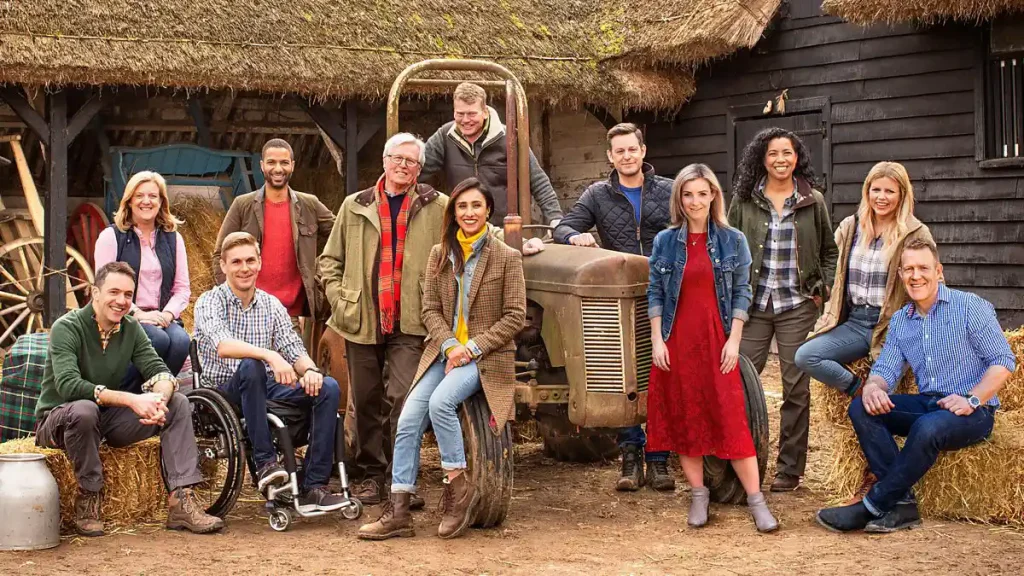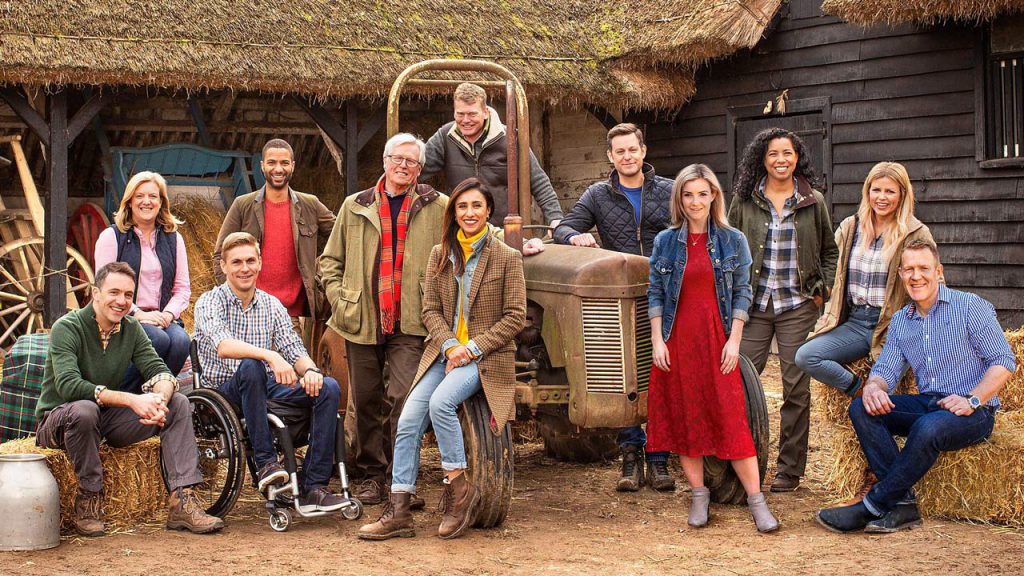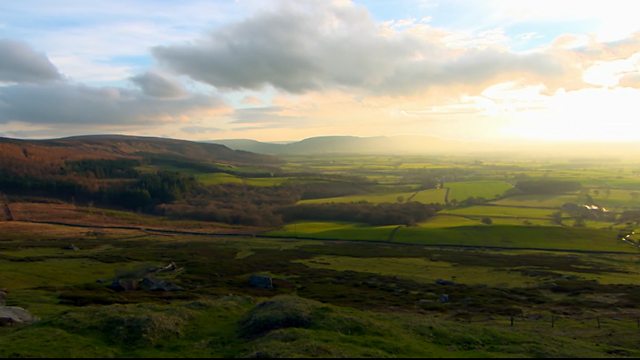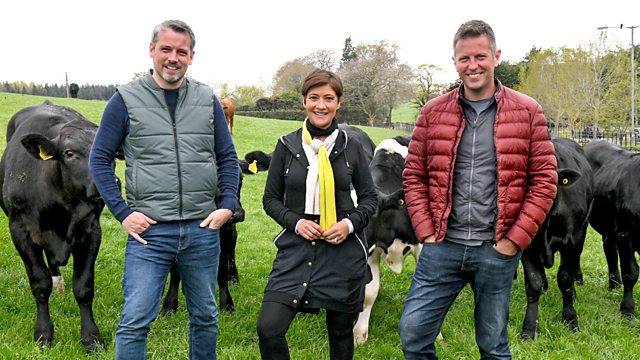Countryfile – D-Day 80th Anniversary – Anita Rani and Charlotte Smith embark on a poignant journey to Dorset, a region steeped in wartime history, where 80 years ago, tens of thousands of troops gathered as the Allies’ combined forces meticulously prepared for the pivotal D-Day invasion. Today, the echoes of this monumental event are still palpable in the local landscape, where austere bunkers gaze steadfastly out to sea, sunken tanks lie submerged just offshore, and a Dorset village remains eerily silent, frozen in time since it was commandeered for the war effort.
Anita delves into the remnants of the formidable D-Day dress rehearsal that unfolded on Studland Bay, a location meticulously chosen for its striking resemblance to the Normandy landing beaches. Here, she uncovers stories of the intense preparations and challenges faced by the soldiers, immersing herself in the atmosphere of anticipation and determination that once filled these shores. Through her exploration, viewers gain a profound understanding of the immense scale and complexity of the D-Day preparations, witnessing firsthand the physical and strategic efforts that were vital for the success of the invasion.
Charlotte, on the other hand, takes a deep dive into the mechanical heart of the war effort. She visits the local tank museum, a treasure trove of wartime technology, to learn how the machinery specifically designed for the landscape of northern France was rigorously tested on Dorset’s beaches. She examines the innovative engineering and tactical adaptations that were necessary to navigate the treacherous terrain of Normandy, offering insights into the ingenuity and resourcefulness of the Allied forces. Through Charlotte’s investigation, the vital role of these armored behemoths in the success of D-Day becomes strikingly clear, highlighting the intersection of human bravery and mechanical might.
Meanwhile, Adam Henson turns his attention to the home front, exploring how farming practices underwent a dramatic transformation during the Second World War to support the nation’s war effort. He looks at how the need for increased food production led to innovative agricultural techniques and policies, ensuring that Britain could sustain itself and its troops during this critical period. Adam’s journey through the fields and farms of wartime Britain reveals the often-overlooked contributions of rural communities to the overall war effort, shedding light on the resilience and adaptability of the British agricultural sector.
Countryfile – D-Day 80th Anniversary
In a slightly different vein, Tom Heap investigates a contemporary issue with historical echoes – the opposition to the installation of new 4G masts in some of Scotland’s most scenic and remote areas. He examines the tension between the modern need for improved connectivity and the desire to preserve the natural beauty and tranquility of these landscapes. By drawing parallels between past and present, Tom highlights the enduring challenge of balancing progress with preservation, a theme that resonates deeply with the historical narratives explored by Anita, Charlotte, and Adam.
Countryfile’s special episode on the 80th Anniversary of D-Day is a multifaceted exploration of history, technology, and community, weaving together stories of courage, innovation, and resilience. It offers viewers a chance to reflect on the monumental efforts that shaped one of the most significant events of the 20th century, while also considering the ongoing challenges and debates that continue to shape our relationship with the past and the future. Through the lenses of its diverse presenters, the episode paints a rich and compelling portrait of how the legacy of D-Day continues to influence and inspire us today.
D-Day: Commemorating 80 Years of Valor and Sacrifice
The year 2024 marks eight decades since the turning point of World War II—D-Day. On June 6, 1944, the Allied forces embarked on the largest amphibious invasion in history, storming the beaches of Normandy, France, and altering the course of the war. This monumental anniversary calls for a solemn remembrance of the courage, sacrifice, and resilience demonstrated by the men and women who participated in this pivotal operation.
The Normandy Landings: A Triumph of Strategic Planning and Human Spirit
Operation Overlord, codenamed D-Day, was a meticulously planned military operation that involved years of preparation and the collaboration of multiple nations. Over 156,000 Allied troops, hailing from the United States, the United Kingdom, Canada, and other countries, crossed the English Channel under the cover of darkness, ready to confront the formidable defenses of Nazi Germany. The invasion was a multi-pronged assault, with troops landing on five beaches—Utah, Omaha, Gold, Juno, and Sword—each facing unique challenges and obstacles.
The bravery and determination displayed by the soldiers on D-Day were nothing short of extraordinary. They faced a relentless barrage of enemy fire, treacherous terrain, and the constant threat of death or injury. Yet, they persevered, pushing forward with unwavering resolve, securing a foothold on the beaches, and ultimately paving the way for the liberation of France and the defeat of Nazi Germany.
Honoring the Legacy: Remembering the Fallen and Celebrating the Victors
As we commemorate the 80th anniversary of D-Day, it is imperative to honor the sacrifices made by those who fought and died on the beaches of Normandy. Their valor and dedication to freedom serve as a testament to the enduring human spirit in the face of adversity. The countless stories of heroism and resilience that emerged from D-Day continue to inspire generations and remind us of the cost of liberty.
This anniversary is also an opportunity to celebrate the veterans who survived the Normandy landings and went on to rebuild their lives and communities. Their experiences serve as a living testament to the power of human resilience and the importance of preserving the memory of those who fought for freedom. It is our duty to ensure that their stories are passed down through the generations, so that the lessons of D-Day are never forgotten.
A Global Commemoration: Unity in Remembrance
The 80th anniversary of D-Day is not just a national commemoration; it is a global event that unites people from all walks of life in remembrance of a shared history. Events and ceremonies will be held across the world, paying tribute to the sacrifices made by the Allied forces and honoring the legacy of those who fought for freedom. These gatherings serve as a reminder of the importance of international cooperation and the power of collective action in overcoming adversity.
In Normandy, the epicenter of the D-Day landings, special events and ceremonies will take place, drawing visitors from around the world to pay their respects and learn more about this pivotal moment in history. The beaches, memorials, and museums of Normandy offer a poignant reminder of the sacrifices made on that fateful day and provide a space for reflection and remembrance.
Preserving the Memory: Lessons for Future Generations
The 80th anniversary of D-Day serves as a poignant reminder of the importance of preserving the memory of historical events. The lessons learned from D-Day, such as the value of international cooperation, the importance of strategic planning, and the unwavering spirit of the human will, continue to hold relevance in the modern world.
As we honor the heroes of D-Day and remember their sacrifices, we must also strive to ensure that their legacy lives on. By educating future generations about the events of D-Day and the values it represents, we can inspire a new generation of leaders, peacemakers, and advocates for freedom. The 80th anniversary of D-Day is a time for reflection, remembrance, and renewal. It is a time to honor the fallen, celebrate the victors, and recommit ourselves to the principles of freedom, democracy, and human dignity that were so valiantly defended on the beaches of Normandy. Let us never forget the sacrifices made on D-Day, and let us strive to create a world where the horrors of war are never repeated.
F.A.Q. Countryfile – D-Day 80th Anniversary
Q.: What is the significance of Dorset in the context of D-Day preparations?
A.: Dorset played a crucial role in the preparations for D-Day, serving as a gathering point for tens of thousands of Allied troops. The region’s landscape was used for rehearsals and strategic planning, with locations like Studland Bay chosen for their resemblance to the Normandy beaches, making it an essential area for the success of the invasion.
Q.: What historical remnants can be seen in Dorset from the D-Day preparations?
A.: Visitors to Dorset can still see significant remnants from the D-Day preparations, including austere bunkers along the coast, sunken tanks offshore, and a village that remains frozen in time since it was taken over for the war effort. These sites serve as powerful reminders of the area’s wartime history and the monumental efforts that took place there.
Q.: How does the episode of Countryfile featuring Anita Rani and Charlotte Smith contribute to our understanding of D-Day?
A.: The special episode of Countryfile offers an in-depth exploration of D-Day preparations and their impact on Dorset. Anita Rani and Charlotte Smith uncover stories of intense training and strategic planning, visit significant historical sites, and provide insights into the machinery and tactics used. Their journey helps viewers appreciate the complexity and scale of the preparations that were vital for the success of D-Day.
Q.: What does Charlotte Smith’s visit to the local tank museum reveal about D-Day?
A.: Charlotte Smith’s visit to the local tank museum in Dorset reveals the extensive engineering and tactical adaptations required for the tanks designed for Normandy’s landscape. The museum showcases the innovative machinery and strategies developed and tested on Dorset’s beaches, highlighting the crucial role of armored vehicles in the success of the D-Day invasion.
Q.: How does Adam Henson’s segment on wartime farming practices relate to D-Day preparations?
A.: Adam Henson’s segment examines how British farming practices transformed during World War II to support the war effort. By increasing food production and implementing innovative agricultural techniques, rural communities ensured that Britain could sustain its troops and population. This segment underscores the vital contributions of the agricultural sector to the overall success of D-Day preparations.




